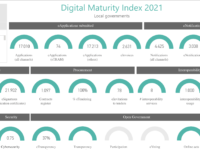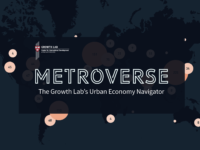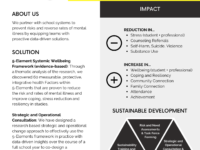During the Russian invasion of Ukraine, relief organizations and government agencies lacked data about events on the ground and struggled to mount an effective response. New methods of event detection were urgently needed. A research team comprised of country experts and computational social scientists created a Twitter-based event detection system that provides geo-located event data on humanitarian needs, displaced persons, human rights abuses and civilian resistance in near real-time.
Innovation Tag: Data
Case Study
BIFIDEX – Official Business and Financial Analytics for the single market in the Western…
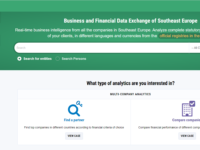
Countries in the Western Balkans created digital infrastructure to support transparent business operation and prevent fraud in their Common Regional Market. The official registries from 5 countries in the Western Balkans created a digital platform, connecting all official legal and financial data about companies, connected entities, blocked bank accounts and sanctioned persons, bridging different legislations, languages and currencies. The platform won the 2022 OECD/SIGMA/ReSPA award.
Digital transformation is a long-term journey that involves complex changes. One of the challenges is how we evaluate the progress. We are inspired by the quote, "If you cannot measure it, you cannot improve it". Most of Catalonia's municipalities cannot do a digital assessment. The Digital Maturity Index provides an evaluation turnkey solution for local governments. It is based on open data, and it has a clear focus on public value impact.
The Future Tech Challenge (FTC) is a pilot initiative led by DPER to connect and collaborate across the wider ecosystem, and engage in transformative innovation by experimenting with, and applying new technology to address pressing public sector problems and opportunities that deliver improved services to the public. Drive innovation using emerging technology, enhance collaboration, meet National strategic priorities, generate knowledge & learnings and develop prototyped solutions.
Metroverse is an urban economy navigator built at the Growth Lab at Harvard University. It is based on over a decade of research on how economies grow and diversify and offers brand new insights on a city's growth prospects by placing its existing technological capabilities and knowhow at the heart of how diversification unfolds. Metroverse was built using a user-centered design process to help city leaders, policymakers and researchers grapple with 21st-century urbanization challenges.
Connectoo Training aims to reduce the digital divide in Belgium by training public officials to better take into account citizens on the digital fringe. Accessible free of charge and 100% online, connectoo trains and certifies public agents in the challenges of digital inclusion and in the reflexes to adopt to help the most vulnerable citizens with online administrative procedures. Together, we are reconnecting digital public services to citizens. In 2022, the digital divide remains more than…
Tackling the effects of rising urban heat goes beyond objective physical measurements. For sure, technical services are in need of blended indicators about the effects of local policies: under which conditions tree planting, fountains, urban design contribute to reduce island heats. The project has created such tools, but is also willing to take seriously into account the subjectivity, the perceived heat, the sensations of our citizens, for they contribute hugely to our collective resilience.
Case Study
Collections of Ghent – Connecting citizens through digitised cultural heritage reuse and…
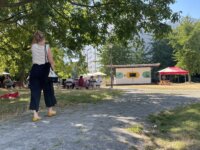
Collections of Ghent is an EU-funded innovation project designed to tackle the urban challenge: How to digitise cultural heritage beyond the cultural institutions, on a city level or higher. And how to use it to improve social cohesion and inclusion within a neighbourhood. It is both a digital transformation project, and a social innovation project where we research how digital cultural heritage can be used in co-creative and participative way.
The General Hospital Asklepieio Voulas has developed an exercise-based cardiac telerehabilitation program in order to increase the participation of eligible patients in cardiac rehabilitation services. Through this, Government and cardiovascular patients will benefit since participation in a CR program can reduce the risks of death and hospital readmissions. To our knowledge this is the first attempt to develop a telerehabilitation program offering a structured, real time, supervised exercise.
Mind the Class, a mental health prevention organization, is partnering with school systems to reduce the risks and reverse the rates of mental and behavioral health disorders by creating a community ecosystem. This full year project collaboratively designs a preventive implementation plan using proven wellbeing research and data-driven solutions in collaboration with our University of Warsaw partners and through local public and private partners support sustainable development.

